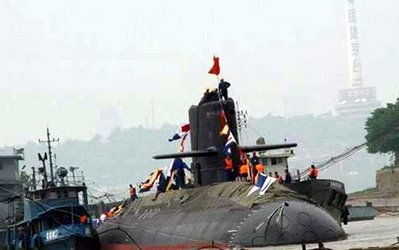Al Qaeda's strategic populism
Slate hits a sore spot, when they ask the oft-asked question "Why do they hate us?" - but then actually try to look it up. By using the recent collections of Al Qaeda's communiques, they point to the fact that Al Qaeda runs after whichever anti-American greivance that will kick up a sentiment . But these grievances are not real concerns of Al Qaeda's, and it really becomes clear if you compile the issues and put them side by side:
Most Americans would agree with many of these complaints. And that's precisely the point. These are not real grievances for al-Qaida (it does not bear mentioning that Bin Laden is probably not very concerned with campaign finance reform). They are a means of weaving local and global resentments into a single anti-American narrative, the overarching aim of which is to form a collective identity across borders and nationalities, and to convince the world that it is locked in a cosmic contest between the forces of Truth and Falsehood, Belief and Unbelief, Good and Evil, Us and Them.
Labels: Al Qaeda, Operation Informations, Rhetorical war


